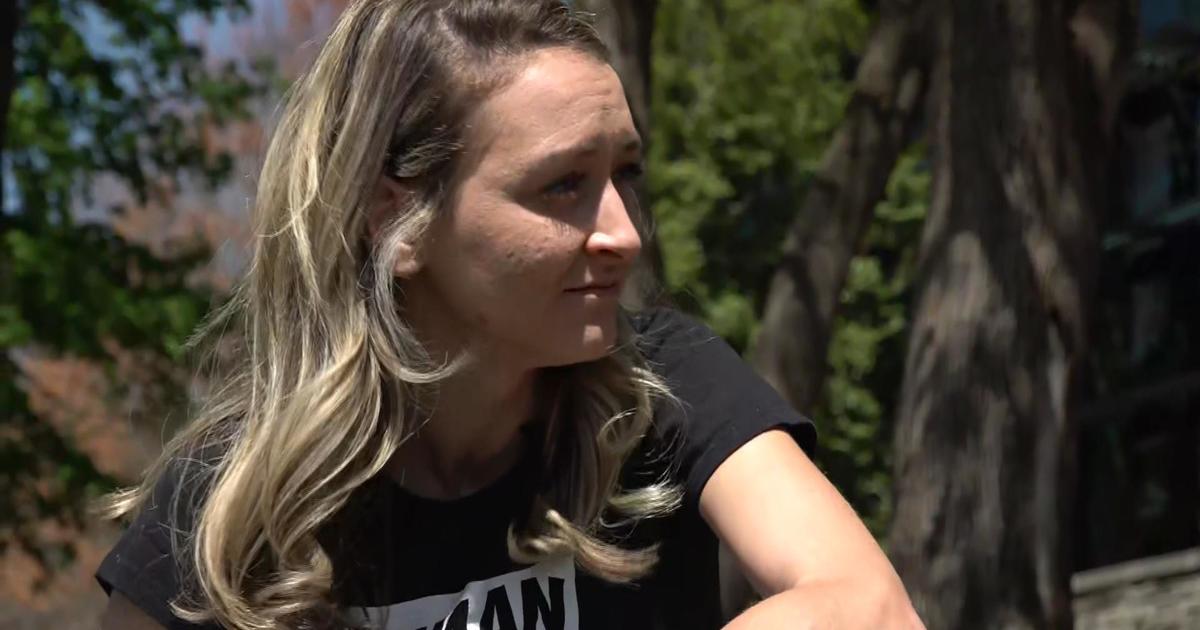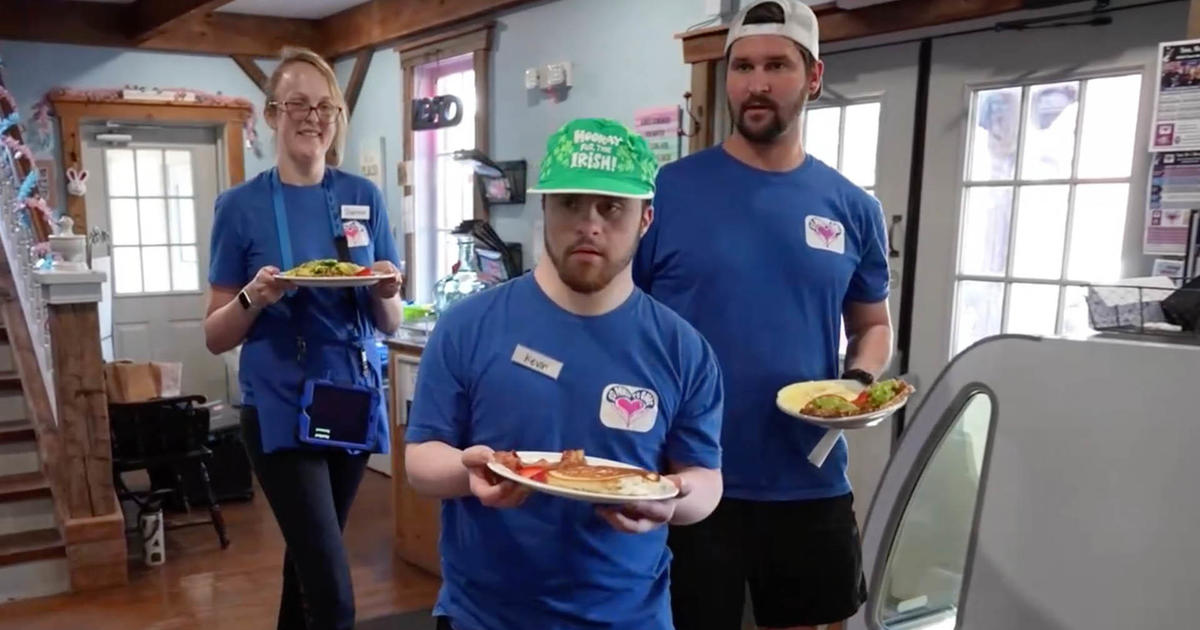New memoir "Little Sister" explores growing up in a religious cult
Veteran financier Patricia Chadwick finds joy within the walls of a church — a familiarity that dates back to her childhood in Massachusetts, when her parents were members of a religious order, the Slaves of the Immaculate Heart of Mary.
"It consisted of about 50, 55 people… banded together for one purpose," she told "CBS This Morning: Saturday" co-host Dana Jacobson. "Over a dogma of the Catholic Church, which said you had to be Catholic to get to Heaven."
The small community would warp into something darker — which Chadwick recounts in her new memoir, "Little Sister," about growing up in a cult led by an excommunicated priest and how she overcame being cut off from her family and the outside world.
Father Leonard Feeney, a Jesuit priest, and Sister Catherine Clark founded the order at the St. Benedict Center in Harvard Square. The community had been made up of educated families like Chadwick's, whose father was a philosophy and theology teacher.
Living at the St. Benedict Center within a fenced-off cluster of homes, Chadwick said her earliest memories had been "absolutely splended."
"I felt as though I had 58 uncles and aunts," she recalled. "I'm talking about when I'm three and four years old…nothing but joy."
Over time, things changed. Chadwick traced it back to her parents' vow to obey Father Feeney.
Chadwick said they were ordered to wear black outfits similar to "a nun's clothing and a monk's clothing."
"They were coerced into vows of celibacy," she said.
Despite the ominous signs, Chadwick said she only recently came to the realization they were in a cult while writing her memoir.
"People were fearful of being kicked out… they had become… those obedient members of this religious order. And they knew they didn't have another option," Chadwick said.
When she was just six years old, Chadwick and the other children at the center were separated from their parents. She said they were sent to sleep at the site of her family's former apartment, after her parents were forced to move out of it.
"It was really difficult," she said of the first night. "I remember crying that night because… you know, every night my father would sing songs to us… tell us a bedtime story. And that night it was silence."
With the family unit broken apart, Sister Catherine's role strengthened.
"She was like a deity. She was the one that controlled everyone and everything," Chadwick said.
She recalled Sister Catherine often used physical punishment. Chadwick described a three-foot piece of rubber hose called "the big punisher" used on children for things she said "you and I might think were actually child's play."
"None of us could hold the hands of our little siblings, and my baby sister was just turning one and starting to walk… And I loved having her hold my fingers. And I would walk backwards," Chadwick said.
She said they were never given a reason why.
"We were told we couldn't pick and choose anything for ourselves," Chadwick said. "To this day, if somebody says, 'What would you like to have?' My instinct is to say, 'Whatever you would like me to have.' It's just the words that are now, you know, it's my muscle memory."
Sill River, Massachusetts became the center's new home in 1958 when Chadwick was nine. It sat on 17 acres about 40 miles outside of Boston.
"Without any guidance, without any knowledge, without any parental support, there I was finding myself just in more and deeper trouble. And eventually I think Sister Catherine reached the point in her mind I was destroying her mission," she said.
The day she graduated high school, Chadwick said she was "discarded" by Sister Catherine — taken away without being allowed to say goodbye to anyone.
Later after being forced into secretarial school by Father Feeney and Sister Catherine, Chadwick said she found room and board at a YWCA.
"I was then on my own, and I was 18," she said. "I had my eyes wide open, my ears wide open and my mouth shut. I was incapable of carrying on a sentence that had anything to do about the real world, so I observed."
Little by little Chadwick found herself able to take on a "comfort level" with engaging with others.
Over the next five years, her parents and four siblings all left the center. Rather than feeling angry at them, Chadwick said she can "understand it completely."
She recalled a conversation with her father in which he told her that her parents planned to take them out in a car and leave one night.
When she had asked him why they didn't, he said they questioned: "Then what?"
"My father was 12 years not teaching… How was he going to get a job?" she said. "He had been… deprived of the things that would have allowed him to walk out. And that's what a cult does… they strip you of who you are."
Asked if she would go back in time and change her life, Chadwick said she would not.
"When I look at where I am today, I'm happily married. I've got my own family… wonderful friends… an extraordinary career," Chadwick said.
She continued, "I think if just one thing were changed in that whole upbringing that I had, maybe I wouldn't be where I am today. And so I would change nothing."



